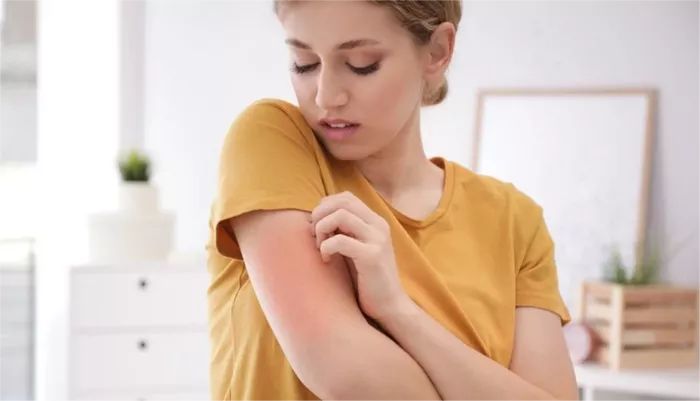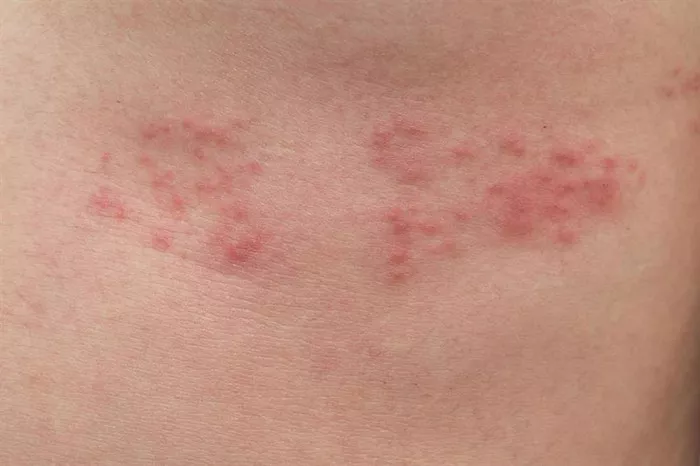Ringworm and MRSA (Methicillin-Resistant Staphylococcus Aureus) are both skin infections, but they are caused by different types of pathogens. While it may seem like these two conditions are related due to their similarity in symptoms, they are fundamentally different in nature. However, there are some important connections between them that are worth understanding. In this article, we will explore how ringworm and MRSA differ, whether ringworm can lead to MRSA, and what you can do to prevent or treat these infections.
What is Ringworm?
Ringworm, also known as tinea, is a fungal infection that affects the skin, hair, or nails. Despite its name, ringworm has nothing to do with worms. It is caused by a group of fungi called dermatophytes that thrive on the keratin found in skin, hair, and nails. The infection appears as a ring-shaped rash with raised edges, often itchy and red. Ringworm can affect various parts of the body, including:
Tinea corporis: Ringworm on the body.
Tinea pedis: Athlete’s foot (ringworm on the feet).
Tinea capitis: Ringworm on the scalp.
Tinea cruris: Jock itch (ringworm in the groin area).
Tinea unguium: Ringworm on the nails.
Ringworm is highly contagious and can spread through direct skin-to-skin contact or by touching surfaces or objects that have been contaminated by the fungus, such as towels, clothes, and gym equipment.
What is MRSA?
MRSA is a type of staph infection caused by a strain of the bacterium Staphylococcus aureus that has developed resistance to many common antibiotics, particularly methicillin. It can cause a range of skin and soft tissue infections, from mild to severe. In some cases, MRSA can lead to more serious infections like pneumonia, blood infections, or bone infections.
MRSA infections often begin as small, red bumps that resemble pimples or boils. These bumps may quickly turn into painful, swollen abscesses filled with pus. MRSA can be spread through direct skin-to-skin contact or by touching contaminated surfaces, just like ringworm. It is particularly common in places where people are in close contact, such as hospitals, gyms, and nursing homes.
Differences Between Ringworm and MRSA
Before diving into the potential relationship between ringworm and MRSA, it’s important to clarify the differences between the two:
Cause: Ringworm is caused by a fungus, while MRSA is caused by a bacteria.
Symptoms: Ringworm often appears as a red, circular rash with a clear center and raised edges. MRSA usually starts as a small, red bump or pimple, which can become larger, swollen, and filled with pus.
Treatment: Ringworm is treated with antifungal medications, either topical or oral, while MRSA is treated with antibiotics, though it requires specific drugs due to its resistance to common antibiotics.
Contagion: Both are contagious, but MRSA tends to be more dangerous because it can cause severe infections if left untreated.
Despite these differences, there can be overlap in how these infections spread and the types of environments in which they are contracted. So, can ringworm lead to MRSA?
Can Ringworm Cause MRSA?
Ringworm itself does not directly cause MRSA. However, there are scenarios where the presence of ringworm could lead to a higher risk of contracting MRSA. Here’s how that might happen:
1. Skin Damage from Ringworm
When ringworm infects the skin, it can cause itching, redness, and irritation. People with ringworm often scratch the affected area, which can break the skin and create small openings. These breaks in the skin act as entry points for bacteria, including Staphylococcus aureus, the bacteria responsible for MRSA. When the skin is damaged due to scratching or other means, it becomes more vulnerable to secondary bacterial infections, such as MRSA.
2. Overlapping Symptoms and Conditions
Sometimes, a person may have both a fungal infection (like ringworm) and a bacterial infection (like MRSA) at the same time. This can happen if the initial fungal infection weakens the skin’s protective barrier, allowing bacteria to invade and cause an additional infection. In this case, while ringworm itself does not directly cause MRSA, it may create an environment in which MRSA is more likely to develop.
3. Weakened Immune System
A person with a weakened immune system is more susceptible to both fungal and bacterial infections. Conditions such as diabetes, HIV/AIDS, or immunosuppressive treatments (like chemotherapy) can make individuals more vulnerable to infections. In such cases, someone with ringworm might be more prone to developing a secondary MRSA infection, especially if their immune system is unable to effectively fight off the bacteria.
4. Shared Environments
Both ringworm and MRSA are commonly contracted in environments like gyms, hospitals, or schools, where people share personal items such as towels, combs, or athletic equipment. If you have ringworm and continue to use these shared items, you may increase the likelihood of developing MRSA or other bacterial infections. Additionally, ringworm can lead to open sores that allow bacteria like Staphylococcus aureus to enter the body, further increasing the risk.
Preventing MRSA When You Have Ringworm
If you have ringworm, there are steps you can take to minimize the risk of developing MRSA or any other secondary infections. Here are some important tips:
1. Treat Ringworm Early
The best way to prevent complications like MRSA is to treat ringworm as soon as you notice symptoms. Over-the-counter antifungal creams or powders are often effective for mild cases, but if the infection is severe or persistent, consult a healthcare provider for prescription antifungal medications.
2. Avoid Scratching
Scratching ringworm lesions can damage the skin and increase the risk of bacterial infections. It’s important to resist the urge to scratch, even if the rash is itchy. If necessary, use over-the-counter hydrocortisone creams to reduce itching, or apply a cold compress to soothe the affected area.
3. Keep the Affected Area Clean and Dry
Fungi thrive in warm, moist environments, so keeping the skin dry and clean is essential when dealing with ringworm. Wash the affected area with mild soap and water, and pat it dry with a clean towel. Avoid sharing towels, clothing, or other personal items with others until the infection has healed.
4. Protect Open Sores
If ringworm causes open sores, cover them with a clean bandage to reduce the risk of bacteria entering through the skin. Keeping the wound covered also reduces the chance of spreading the infection to others.
5. Seek Medical Advice
If you develop signs of a bacterial infection, such as increased redness, warmth, swelling, or pus, it’s important to see a doctor right away. MRSA can be treated effectively if caught early, but it may require a different approach than treating a fungal infection. Your doctor may prescribe antibiotics specifically targeting MRSA, or, in more severe cases, drain the infection if an abscess forms.
How to Treat MRSA
If MRSA does develop, treatment will focus on eliminating the bacterial infection. MRSA is resistant to many antibiotics, so it requires specific treatment. Doctors will often prescribe a type of antibiotic that is effective against resistant strains, such as clindamycin, doxycycline, or trimethoprim-sulfamethoxazole.
In some cases, an abscess may form, and it may need to be drained by a healthcare professional to remove the pus and relieve pressure. It’s important to follow all of your doctor’s instructions when treating MRSA to ensure the infection is fully cleared and does not become more serious.
Conclusion
In summary, ringworm itself does not directly cause MRSA, but it can increase the risk of developing a MRSA infection if the skin becomes damaged or compromised. If you have ringworm, it’s important to treat it promptly and take steps to avoid scratching or further damaging the skin. Good hygiene practices, such as keeping the affected area clean and avoiding shared personal items, can also help reduce the risk of both fungal and bacterial infections.
If you develop signs of MRSA or any other bacterial infection while dealing with ringworm, seek medical attention immediately. By acting quickly, you can prevent the infection from becoming more severe and protect your overall skin health.
Related topics



























